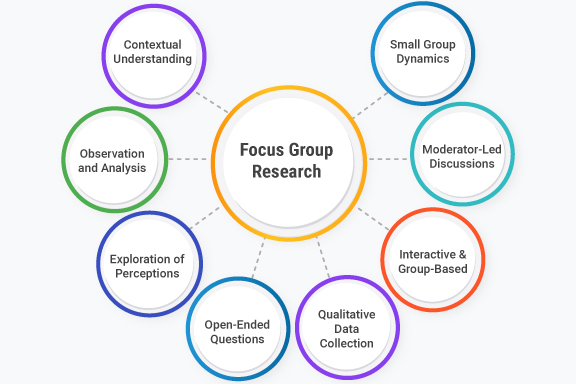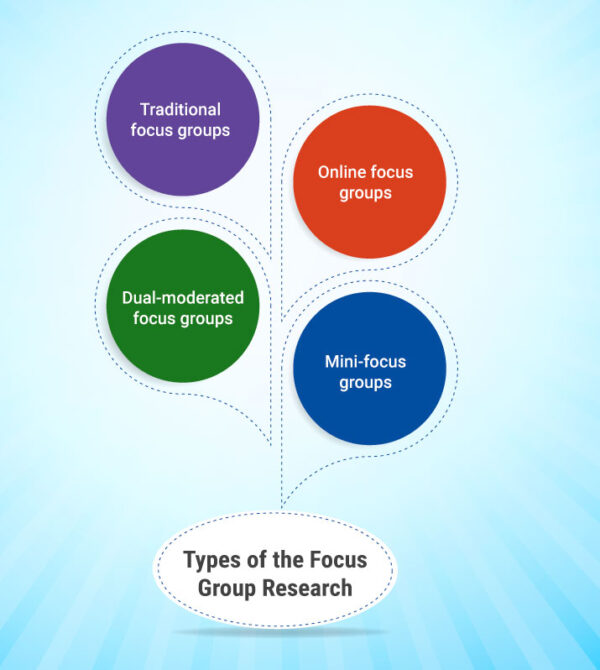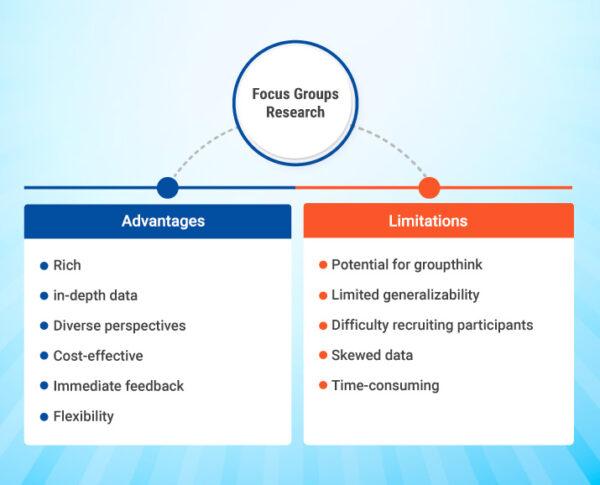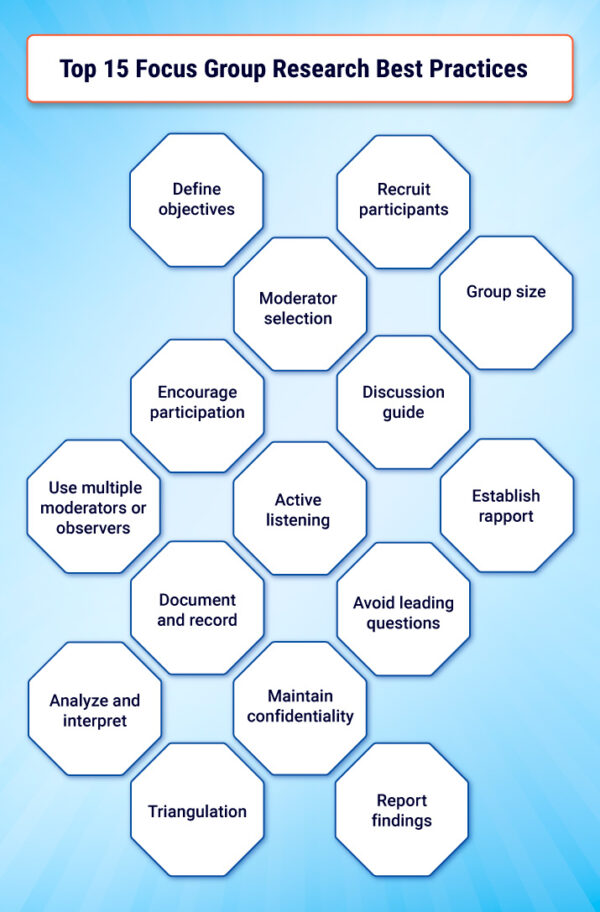Research Skills
Developing a research focus.
What is the difference between a subject and a topic ? What about between a research question and a research problem ? We often use these terms interchangeably, but they mean different things. As you begin to develop a personal research process, it is important to define these terms and be able to differentiate them. By the end of this section, you will be able to articulate a research question and develop a framework for a future study.

Topic vs. Subject
The best way to think about the difference between a topic and a subject is to think about the classes you took in high school. You took classes called “American History” and “World Literature,” but within those classes you studied more specific topics, like the Spanish-American War or The Aeneid . Academic research is similar. Your “subject” is your specialization within your major. If you are majoring in Communication Sciences and Disorders, for example, you may be most interested in the field of Audiology. Audiology is a research subject .
You wouldn’t be able to write a research paper on audiology, however. It’s far too broad; there are entire courses—and graduate degrees—for audiology. The first step in developing a research focus is to narrow your general subject to a more specific topic .
Here are some examples of how common subjects can be broken up into more specific topics:
As you can see from the chart above, topics are much more specific than subjects and they are more manageable to use when determining a research focus. A topic doesn’t give you enough to dive in and start drafting, but it is enough to help you develop a framework for turning the topic into a successful research project.
So how do you get from subject to topic ? The next section will give you some strategies.
Finding your Topic
Now that you understand the connections between your major and your discipline and how these create an academic discourse community, you are ready to begin sifting through the current topics, issues, and concerns that your discourse community is focused on at present. In academia, as elsewhere, there are trending topics. These topics reflect what people in your discipline think is most important at the moment. It might be helpful for you to consider what you have discussed in your major courses, or what you and those in your major discuss most often. What challenges do your field and its practitioners face now and in the future? When determining your topic, you will likely go through a number of steps. These will help you to sort through the many topics you will encounter and to select a topic that is relevant, current, and interesting to you. The best research topics are well defined, sufficiently narrow, and part of a larger problem in your discipline.
Identifying a topic
To select a viable topic for your research project, you should:
- Brainstorm about topics that you have encountered in your discourse community;
- Select several potential topics based on your interest(s);
- Ensure that the topic is manageable (i.e., that it is narrow enough);
- Ensure that scholarly material is available;
- Ensure that the topic is focused on a solvable problem;
- List academic terms associated with this topic;
- Use generated academic terms to search databases focused on your discipline; and
- Define your topic as a focused research question.
First, have a look at this resource that describes the rather intricate process of finding a research topic that is sufficiently narrow, yet still present enough in the literature of your discourse community to support a semester-long project:
Check your understanding
Let’s say your assignment is to research an environmental issue. This is a broad starting point, which is a normal first step.
One way to customize your topic is to consider how different disciplines approach the same topic in different ways. For example, here’s how the broad topic of “environmental issues” might be approached from different perspectives:
- Social Sciences: Economics of Using Wind to Produce Energy in the United States
- Sciences : Impact of Climate Change on the Habitat of Desert Animals in Arizona
- Arts and Humanities : Analysis of the Rhetoric of Environmental Protest Literature
Candela Citations
- Determining your Topic. Authored by : Andrew Davis & Kerry Bowers. Provided by : University of Mississippi. Project : WRIT 250 Committee . License : CC BY-SA: Attribution-ShareAlike
- OER Commons: Begin your Research. Provided by : OER Commons. Located at : https://www.oercommons.org/courseware/module/11888/overview . License : CC BY-NC: Attribution-NonCommercial

Privacy Policy
- Privacy Policy

Home » Focus Groups – Steps, Examples and Guide
Focus Groups – Steps, Examples and Guide
Table of Contents
Focus groups are a qualitative research method used to gather in-depth insights from a small group of people on a specific topic, product, or concept. They provide valuable perspectives by facilitating open discussion, allowing researchers to observe participants’ thoughts, feelings, and behaviors in real-time. This guide explores the steps to conducting focus groups, examples, and practical tips for organizing a successful session.

Focus Group
A focus group is a carefully planned discussion involving a small number of participants who share their opinions and attitudes about a specific topic. Guided by a moderator, focus groups encourage interactive discussions that yield qualitative insights, making them especially useful in fields like marketing, social science, product development, and healthcare.
Key Features of Focus Groups :
- Small Group Size : Typically 6–10 participants, which allows for effective discussion without overwhelming participants.
- Guided Discussion : A moderator facilitates the conversation to keep it on topic while allowing for natural flow.
- In-Depth Insights : Focus groups provide detailed insights into participants’ thoughts and emotions, which can be difficult to obtain through surveys or interviews.
Purpose of Focus Groups
The main purpose of a focus group is to explore participants’ attitudes, beliefs, and opinions. Focus groups help to:
- Understand Customer Preferences : Collect feedback on products or services directly from users.
- Refine Ideas and Concepts : Test ideas or concepts by understanding how participants perceive them.
- Explore Social Attitudes : Identify social attitudes, behaviors, and motivations on complex issues.
Steps to Conduct a Focus Group
Step 1: define objectives.
The first step is to clarify what you hope to achieve from the focus group. Define clear research objectives and questions that guide the focus group discussion.
Example Objective : A healthcare organization may aim to understand patients’ experiences with telemedicine services to improve user satisfaction.
Step 2: Recruit Participants
Select participants who represent your target audience. Recruitment can be done through emails, social media, flyers, or professional recruiters. Ensure participants have diverse backgrounds to provide well-rounded insights but also share common characteristics relevant to the study.
Participant Selection Criteria :
- Demographics (age, gender, location)
- Experience level (users of a product, service, or issue)
- Specific interests or behaviors relevant to the research
Step 3: Develop a Discussion Guide
A discussion guide is essential for structuring the session. It includes open-ended questions that encourage participants to share their thoughts and feelings. Questions should be straightforward, unbiased, and designed to stimulate conversation.
Example Questions :
- “What are your initial impressions of this product?”
- “What challenges have you faced with telemedicine appointments?”
- “How would you compare this service to others you’ve used?”
Step 4: Choose a Moderator and Prepare the Setting
The moderator plays a critical role in guiding the conversation and ensuring all voices are heard. An ideal moderator is neutral, skilled in communication, and experienced in group facilitation. The setting should be comfortable, private, and conducive to open discussion.
Moderator Responsibilities :
- Encourage participation from all members.
- Keep the discussion on topic without leading participants.
- Manage group dynamics to avoid dominant voices overshadowing others.
Step 5: Conduct the Focus Group
Begin by welcoming participants and explaining the purpose of the session. Set guidelines for respectful conversation and assure confidentiality. Use the discussion guide to direct the conversation while allowing participants to express themselves freely. Take notes, or record the session (with participants’ consent) for accurate analysis later.
Key Points During the Session :
- Introduce Topics Naturally : Start with broad questions and narrow down to specifics.
- Encourage Interaction : Foster group interaction by prompting participants to respond to each other’s ideas.
- Observe Nonverbal Cues : Pay attention to body language, tone, and facial expressions, which can provide additional insights.
Step 6: Analyze Results
After the session, transcribe the recording and review the notes to identify common themes, patterns, or differences in responses. Coding responses and grouping them by themes can help organize insights for analysis.
Analysis Process :
- Identify recurring themes or patterns.
- Note unique or unexpected insights that may require further exploration.
- Summarize findings based on the research objectives.
Step 7: Report Findings
Present the findings in a clear, structured format, often including a summary, key insights, and recommendations based on the focus group data. Visual aids, like charts or quotes, can help communicate results effectively.
Example of a Focus Group Report Structure :
- Introduction : State the research objectives and purpose of the focus group.
- Methodology : Describe participant demographics, recruitment, and the session process.
- Findings : Summarize key themes, quotes, and observations.
- Conclusion and Recommendations : Provide actionable insights or suggestions based on the findings.
Examples of Focus Group Applications
- Product Development : A tech company conducts a focus group with smartphone users to gather feedback on a new phone model’s design, usability, and features.
- Healthcare : A hospital holds a focus group with patients who use telemedicine to understand their satisfaction levels and identify areas for improvement.
- Education : An educational institution organizes a focus group with students to explore their experiences with online learning platforms and identify potential challenges.
- Public Policy : A government agency conducts focus groups with community members to understand opinions about new public health initiatives, such as vaccination programs.
Tips for Conducting Successful Focus Groups
- Create a Comfortable Atmosphere : Make participants feel comfortable and valued to encourage openness and honesty.
- Keep Questions Neutral : Avoid leading questions that might influence participants’ responses.
- Engage All Participants : Use strategies to involve quieter participants while managing dominant voices.
- Stay Flexible : While the discussion guide provides structure, allow flexibility to follow interesting tangents.
- Respect Time : Keep the session within the planned timeframe, usually lasting 60–90 minutes, to avoid participant fatigue.
Advantages and Limitations of Focus Groups
Advantages :
- Rich Data : Provides deep insights into participants’ thoughts, feelings, and motivations.
- Interactive Discussion : Allows participants to build on each other’s ideas, generating new perspectives.
- Efficient : Enables researchers to gather diverse opinions in a relatively short time.
Limitations :
- Potential for Bias : The moderator’s influence or dominant participants can sway the discussion.
- Limited Generalizability : Findings may not represent the broader population due to small sample size.
- Time and Cost : Organizing and analyzing focus group data can be resource-intensive.
Focus groups are a powerful tool for gathering qualitative insights that provide depth and context to research questions. By following the steps outlined here—defining objectives, recruiting participants, developing a guide, and conducting thorough analysis—researchers can effectively use focus groups to explore complex issues. While focus groups have some limitations, their ability to capture detailed and interactive feedback makes them invaluable for studies in fields like marketing, healthcare, and public policy.
- Morgan, D. L. (1997). Focus Groups as Qualitative Research . Sage Publications.
- Krueger, R. A., & Casey, M. A. (2014). Focus Groups: A Practical Guide for Applied Research . Sage Publications.
- Flick, U. (2018). An Introduction to Qualitative Research . Sage Publications.
- Patton, M. Q. (2015). Qualitative Research & Evaluation Methods . Sage Publications.
- Rabiee, F. (2004). Focus-group interview and data analysis . Proceedings of the Nutrition Society , 63(4), 655-660.
About the author
Muhammad Hassan
Researcher, Academic Writer, Web developer
You may also like

Explanatory Research – Types, Methods, Guide

Quasi-Experimental Research Design – Types...

Experimental Design – Types, Methods, Guide

Triangulation in Research – Types, Methods and...

Ethnographic Research -Types, Methods and Guide

Descriptive Research Design – Types, Methods and...
The Enlightened Mindset
Exploring the World of Knowledge and Understanding
Welcome to the world's first fully AI generated website!
What is Focus in Science? Examining the Role of Focus in Scientific Research and Learning
By Happy Sharer

Introduction
Focus is an important component of scientific research and learning. It is defined as the ability to concentrate on a particular topic or task, excluding any distractions or other external factors that might interfere with the goal. In this article, we will explore what focus is in science, examining the role of focus in scientific research and learning.
Examining the Role of Focus in Scientific Research
Focus is essential in scientific research, as it provides scientists with the ability to concentrate on specific topics or tasks without being distracted by external factors. This allows them to make progress in their research more efficiently and effectively. Additionally, focus can help scientists identify key patterns and trends that may not be apparent at first glance, allowing them to make new discoveries.
Dr. Jane Smith, a professor of biology at Harvard University, has conducted extensive research into the role of focus in scientific research. According to her findings, “Focus helps scientists to think more deeply about a subject and consider different perspectives, enabling them to make connections between ideas that may otherwise go unnoticed.” She further states that “Focus also allows scientists to hone in on details that may be overlooked when working on a project, giving them the opportunity to make more informed decisions.”


Understanding the Benefits of Focusing in Scientific Studies
There are numerous benefits to focusing in scientific studies. First and foremost, it enables scientists to stay organized and on task. By narrowing their focus, they can break down complex projects into smaller, more manageable tasks that can be completed more quickly and efficiently. This is especially important in the field of research, where time is often of the essence.
In addition, focus can help scientists make connections between different pieces of information that may otherwise go unnoticed. By taking the time to focus on a particular topic, scientists can uncover patterns and trends that could lead to new discoveries. Furthermore, focus can help scientists develop creative solutions to difficult problems, as it allows them to think outside the box and consider alternative approaches.

Applying Focus to Enhance Scientific Learning
Focus is also beneficial in scientific learning. By narrowing their focus, students can better understand and remember the material they are studying. Additionally, focus can help them remain organized and on task, making it easier to complete assignments and exams. Furthermore, focus can help students develop critical thinking skills, as it encourages them to think more deeply about a subject and consider different perspectives.
Dr. John Doe, a professor of physics at Stanford University, has conducted several studies on the impact of focus on scientific learning. According to his findings, “Focusing on a particular topic helps students to gain a better understanding of the material and retain more information. Additionally, focusing on a particular problem or concept can help them develop creative solutions and make connections between seemingly unrelated ideas.”
In order to maximize the benefits of focus in scientific learning, it is important to develop and maintain good study habits. Taking regular breaks, setting realistic goals, and eliminating distractions can all help students stay focused and on task. Additionally, scheduling daily review sessions and practice tests can help students better retain the material they have learned.
In conclusion, focus is an essential component of scientific research and learning. It enables scientists to make progress in their research more efficiently and effectively, while also helping students better understand and remember the material they are studying. Additionally, focus can help scientists and students alike develop creative solutions to difficult problems and make connections between seemingly unrelated ideas. By developing and maintaining good study habits, individuals can maximize the benefits of focus in their scientific studies.
(Note: Is this article not meeting your expectations? Do you have knowledge or insights to share? Unlock new opportunities and expand your reach by joining our authors team. Click Registration to join us and share your expertise with our readers.)
Hi, I'm Happy Sharer and I love sharing interesting and useful knowledge with others. I have a passion for learning and enjoy explaining complex concepts in a simple way.
Related Post
Efficiency at your fingertips: enhancing workflows with servicenow integration, global ruby on rails dev outsourcing: leveraging expertise, trading crypto in bull and bear markets: a comprehensive examination of the differences, leave a reply cancel reply.
Your email address will not be published. Required fields are marked *
Comprehensive Guide to the Latest News on the US Election 2024
Expert guide: removing gel nail polish at home safely, making croatia travel arrangements.
the intact one
Read MBA, BBA, B.COM Notes
Research, Definition, Meaning, Importance, Types, Qualities
Research is a systematic process of investigating, studying, and analyzing information to discover new facts, interpret data, or draw conclusions. It involves gathering data from various sources, organizing it, and using critical thinking to analyze the findings. Research aims to address questions, solve problems, or explore new ideas.
In business, research is essential for understanding markets, customer behavior, industry trends, and competitive landscapes. It helps organizations make informed decisions and develop effective strategies. Research can be categorized into two types: primary research , which involves collecting new data through surveys, interviews, or experiments, and secondary research , which relies on existing data such as reports, articles, or case studies.
The research process generally includes defining a problem, formulating hypotheses, collecting data, analyzing results, and drawing conclusions. It is fundamental in advancing knowledge, fostering innovation, and guiding evidence-based decision-making.
Importance of Research:
Informed Decision-Making
Research plays a critical role in enabling informed decision-making by providing reliable data and insights. Whether in business, healthcare, education, or government, decisions based on thorough research tend to be more effective and rational, minimizing risks and maximizing potential outcomes.
Problem-Solving
Research is essential for identifying, analyzing, and solving problems. It helps organizations and individuals understand underlying issues and develop appropriate solutions. In business, research enables companies to address customer needs, resolve operational challenges, and improve product development processes.
Innovation and Development
Research fosters innovation by exploring new ideas, technologies, and processes. It drives progress in various industries, leading to advancements in technology, products, and services. By investing in research, companies can create new offerings, improve existing ones, and stay competitive in their market.
Understanding Consumer Behavior
In the business world, understanding consumer behavior is critical for success. Research helps organizations analyze market trends, customer preferences, and buying patterns. This enables companies to tailor their products and services to meet customer needs, ensuring better customer satisfaction and loyalty.
Enhancing Competitiveness
Organizations that engage in continuous research are better equipped to anticipate market trends, identify opportunities, and adapt to changes. Research enables businesses to stay ahead of competitors by providing insights into emerging technologies, evolving consumer demands, and industry innovations.
Effective Planning and Forecasting
Research is vital for effective planning and forecasting. By analyzing historical data and trends, businesses can predict future market conditions and make strategic decisions. It helps in resource allocation, setting objectives, and formulating long-term strategies that align with future opportunities and challenges.
Improvement in Quality of Life
Research contributes significantly to improving the quality of life by advancing knowledge in fields such as healthcare, education, and environmental studies. Medical research, for example, leads to new treatments, vaccines, and healthcare practices that improve public health and extend life expectancy.
Policy Formulation
Governments and organizations rely on research to formulate sound policies and regulations. Research provides evidence-based information that helps policymakers understand societal issues, economic trends, and environmental concerns, enabling them to create effective laws and programs.
Building Knowledge Base
Research is fundamental to expanding the body of knowledge in any field. It allows individuals and organizations to build upon existing information, contributing to academic, professional, and societal growth. The accumulation of knowledge through research leads to better understanding, learning, and continuous development.
Types of Research:
Basic (Pure) Research
Basic research is conducted to expand existing knowledge without a specific practical application in mind. It focuses on understanding fundamental principles, theories, or phenomena. For example, a physicist studying the properties of matter may not have an immediate practical goal, but their findings could later contribute to technological advancements.
Applied Research
Applied research has a direct, practical objective. It seeks to solve specific problems or address real-world challenges. For instance, researching ways to improve solar energy efficiency or developing a new medical treatment falls under applied research.
Exploratory Research
Exploratory research is conducted when little is known about a problem or issue. It aims to gather preliminary data to better understand the situation, identify potential hypotheses, and lay the foundation for future studies. It is often used when a topic has not been studied extensively.
Descriptive Research
Descriptive research aims to describe characteristics, events, or phenomena systematically. It involves observation and data collection without manipulating variables. For example, a survey that gathers information about consumer preferences in a particular market would be descriptive research.
Explanatory Research
Explanatory research seeks to explain the cause-and-effect relationships between variables. It aims to identify why things happen and how variables interact. Researchers use this type of research to test hypotheses and explain patterns observed in data. It often follows exploratory or descriptive research.
Quantitative Research
Quantitative research involves collecting numerical data and using statistical methods to analyze it. It focuses on measuring variables and often uses tools such as surveys, experiments, and standardized tests. For example, a market research survey asking customers to rate their satisfaction on a scale from 1 to 10 is quantitative research.
Qualitative Research
Qualitative research focuses on understanding subjective experiences, behaviors, and social phenomena. It involves collecting non-numerical data, such as interviews, observations, and focus groups. For example, a study exploring the emotional impact of social media on teenagers would be qualitative.
Experimental Research
Experimental research involves manipulating one or more variables to observe their effects on other variables. It is commonly used in scientific studies to test hypotheses and establish causality. For instance, testing the effectiveness of a new drug in controlled clinical trials is a form of experimental research.
Longitudinal Research
Longitudinal research involves studying the same subjects over an extended period. This method helps researchers observe changes and trends over time. It is commonly used in social sciences to study developmental patterns or long-term effects of interventions.
Cross-Sectional Research
Cross-sectional research collects data from a population or a sample at one specific point in time. It is often used to assess prevalence or to compare different groups. A study that surveys different age groups about their social media usage at a single point in time is an example of cross-sectional research.
Qualities of Research:
- Objectivity
Research should be unbiased and objective, meaning that the findings are based on factual evidence rather than personal opinions, feelings, or assumptions. The researcher must remain neutral, ensuring that the data collection, analysis, and interpretation are conducted without interference from personal biases.
Systematic Approach
Research must follow a structured, organized, and methodical process. This includes defining the research problem, setting objectives, formulating hypotheses, gathering data, and analyzing results in a logical sequence. A systematic approach ensures that the research is coherent and replicable.
- Reproducibility
A key quality of research is its reproducibility, meaning that other researchers should be able to replicate the study using the same methods and data and achieve similar results. This builds credibility and trust in the research findings.
Validity refers to the accuracy and relevance of the research. A study is valid if it measures what it is intended to measure and the conclusions are based on sound evidence. Validity ensures that the research findings genuinely reflect the reality they are investigating.
- Reliability
Reliability means that the research results are consistent and can be replicated across different times, conditions, or researchers. A reliable study will produce the same results if conducted under the same circumstances repeatedly, ensuring that the data is dependable.
Empirical Evidence
Research should be based on observable, measurable, and verifiable data collected through experiments, surveys, observations, or other scientific methods. Empirical evidence forms the foundation of credible research, as it relies on actual data rather than theory or speculation.
Research must be precise, using accurate measurements, methods, and language. Precision ensures that the research variables, methods, and findings are well-defined and can be understood clearly by others. This also involves using proper statistical tools to analyze the data accurately.
Ethical Considerations
Good research must adhere to ethical standards, including honesty, integrity, and respect for participants’ rights. Ethical research ensures confidentiality, informed consent, and the welfare of participants. Plagiarism and data manipulation are avoided, and the research is conducted with transparency.
- Originality
Originality is an essential quality in research, as it contributes new knowledge, perspectives, or solutions to the field of study. Original research fills gaps in existing knowledge, challenges established theories, or explores uncharted areas.
Clear Communication
Research findings should be communicated clearly and effectively. A well-organized research report, article, or presentation helps others understand the research’s purpose, methods, and results. Good communication includes concise writing, logical structuring of ideas, and effective use of visuals like charts or tables.
Share this:
You might also like, excel application to make balance sheet, role of intermediaries, marketing mix modelling; variables and techniques, 2 thoughts on “ research, definition, meaning, importance, types, qualities ”.
- Pingback: KMB203 BUSINESS RESEARCH METHODS – STUDY MBA & BBA NOTES
- Pingback: KMBN203 Business Research Methods
Leave a Reply Cancel reply

Search form
You are here, developing your central research focus.
In order to identify a relevant and useful research question it is first necessary to define an initial research focus. It is essential to select an area of research that interests you as this will help to maintain your motivation, in what is a long and rigorous process. In addition the relevance of the research focus needs to be considered in relation to how it links to current policies, research and developments in education (Menter, Elliot, Hulme, Lewoin, and Lowden, 2011). The feasibility of the project relates to the timeline for the research and researcher expertise in developing and using the chosen methods. In addition it is necessary to consider the study population, i.e. where or from whom you plan to obtain your data to enable you to select the most appropriate groups or contexts for answering your research questions and to ensure that there is sufficient accessibility for you to carry out your research (Kumar 2011).
Key things to consider:
Which aspects of education would you be interested in researching? It is very important for you to select an area of research that you are interested in as the research process is very intensive and you will be far more motivated to research an area of interest.
Are there aspects of your own practice or of the educational setting in which you work which you would like to investigate as a precursor to implementing change? This can be a rewarding field as research as findings can directly influence practice, however it is necessary to ensure that any area you choose an area that where there is existing research for you to build on.
Some features which characterise the early stages of a successful research project are listed below (Campbell 1982, cited in Robson, 2000):
The research arises out of a real world problem.
The researcher develops a good understanding of relevant theoretical perspectives by reading literature focussing on theory and research in the area of interest.
Well-developed contacts are developed with professionals within that field of study.
A framework devised by Cresswell (2011) as a template for structuring the development of a research problem has been adapted below to help you identify areas that you need to consider when developing your central research focus:
Topic: general statement of the area to be researched
Research problem: an issue within that research area which could form the basis of research
Justification for the research problem: evidence of some form which identifies the issue as being one which would benefit from further exploration e.g. deficiencies in existing research; personal observations; research findings.
Relating the discussion to audiences: explicit identification of audiences who would benefit from the research or find it of interest.
You may find it helpful to use the questions below which are based on Cresswell’s framework to help you evaluate your ideas for possible central research questions:
How could you justify researching this issue?
What evidence do you have for your justification?
Who would be interested in / benefit from this research?
Often it is necessary to have some form of stimulus to help you develop your initial ideas about what you want to research. Different starting points for research from which it is possible to develop your research focus include:
published research which focuses on effective practice
reflections on personal practical experiences and observations
educational theories
contemporary issues of significance in development of policy, exploring the possible impact of policy decisions on practice
responding to stakeholder needs e.g. those of a particular group of pupils.
Identifying issues to research
Identify some issues within education and write three questions in relation to this that could be a starting point for research. You can get ideas from this from your educational setting or from current issues, for example see resources below:
Websites for organisations which fund research projects:
Economic and Social Research Council
http://www.esrc.ac.uk
The Nuffield Foundation
http://www.nuffieldfoundation.org/
The Leverhulme Trust
http://www.leverhulme.ac.uk/
The Times Educational Supplement and Times Higher Education Supplement
Evaluate the questions you have identified and choose a question to develop further and carry out some reading on related research. Rework your question based on the ideas from your readings. How has your initial question changed?
- Research Design
Creative Commons
Qualitative Research Guide : Focus Groups
- Gray Literature
- Action Research
- Bibliometrics
- Case Studies
- Content Analysis
- Ethnographic Research
- Focus Groups
What are Focus Groups?
Books about focus groups, resources on focus groups, focus groups in the literature.
- Grounded Theory
- Life Histories
- Mixed Methods
- Participant Observation
- Statistics and Data
- Data Analysis and Software
- Writing About Qualitative Research
- Sharing Qualitative Data
Focus groups are "a carefully planned series of discussions designed to obtain perceptions on a defined area of interest in a permissive, non-threatening environment” (Krueger and Casey, 2000, p. 5)
The following books are available as ebooks through the UCSF Library unless otherwise noted
- Can You Call It a Focus Group A document from Iowa State University Extension explaining what makes focus groups different from just getting a group of people together to discuss an issue.
- Focus Group Fundamentals A very clear overview and tips from the Iowa State University Extension division.
- Methodology Brief: Introduction to Focus Groups A detailed description with instruction and tips for focus group research from the Center for Assessment, Planning & Accountability.
This RSS feed contains the latest 5 articles for the Pubmed search: "Focus Groups"[Mesh]
- << Previous: Ethnographic Research
- Next: Grounded Theory >>
- Last Updated: Dec 12, 2024 6:14 PM
- URL: https://guides.ucsf.edu/QualitativeResearch
What is Focus Group Research? Definition, Types, Methods, and Examples
By Nick Jain
Published on: May 17, 2023

Table of Contents
What is Focus Group Research?
Types of the focus group research, focus group research method: 6 key steps, advantages and limitations of focus group research, focus group research examples, top 15 focus group research best practices.
Focus group research is defined as a qualitative research method used to gather data from a small, diverse group of people in a facilitated group discussion. This method is commonly used in marketing and social science research to gain insight into the opinions, attitudes, and perceptions of a target audience.
In a typical focus group , a moderator leads a discussion among a group of 6-12 participants, who are chosen based on certain demographic or psychographic criteria, such as age, gender, income, or lifestyle. The participants are asked open-ended questions about a particular topic, product, or service, and are encouraged to share their opinions, experiences, and feelings with the group.
Focus group research Key characteristics
Focus group research has several key characteristics that distinguish it as a qualitative research method:
- Small Group Dynamics: Focus group research involve a small number of participants, typically ranging from 6 to 10 individuals. This small size allows for meaningful interactions and in-depth discussions.
- Moderator-Led Discussions: A trained moderator guides the focus group discussion. The moderator’s role is to facilitate the conversation, ask open-ended questions, and ensure that all participants have an opportunity to share their thoughts and opinions.
- Interactive and Group-Based: Participants engage in a group discussion rather than responding to surveys or questionnaires individually. The interactions among participants can lead to the generation of new ideas and perspectives.
- Qualitative Data Collection: Focus group research generates data through qualitative research , which is descriptive, non-numerical information. The aim is to capture the richness of participants’ experiences, attitudes, beliefs, and opinions.
- Open-Ended Questions: Participants are prompted with open-ended questions that encourage them to elaborate on their thoughts and provide detailed responses. This approach allows for the exploration of complex ideas and viewpoints.
- Exploration of Perceptions: Focus group research delve into participants’ perceptions, feelings, and experiences related to a specific topic. This provides insight into the underlying reasons behind behaviors and attitudes.
- Non-Verbal Communication: In addition to spoken responses, focus group moderators pay attention to participants’ body language, facial expressions, and other non-verbal cues that can reveal hidden meanings or emotions.
- Multiple Perspectives: Focus group research brings participants together with diverse backgrounds, experiences, and viewpoints. This diversity can lead to a rich exchange of ideas and insights.
- Flexible Structure: While focus group research sessions are guided by a moderator, the discussions themselves can be fluid and dynamic, allowing participants to explore various aspects of the topic.
- Observation and Analysis: Focus group research sessions are typically recorded and transcribed for later analysis. Researchers identify patterns, themes, and recurring ideas in the data to draw meaningful conclusions.
- Contextual Understanding: Focus group research is well-suited for exploring the contextual factors that shape participants’ attitudes and behaviors. It provides a deeper understanding of how individuals interact within their social and cultural environments.
- Pilot Testing and Pre-Testing: Focus group research is sometimes used to pilot test or pre-test concepts, materials, or ideas before broader implementation. This helps identify potential issues and refine strategies.
- In-Depth Exploration: Focus group research allows for a deeper exploration of topics that might not be fully captured through quantitative methods alone. They provide context and nuance that can be essential for decision-making.
- Limitations: While focus group research is valuable, it has limitations. Findings are context-specific and may not be easily generalizable to larger populations. Careful consideration is needed when interpreting the results.
Focus group research is a valuable method for gaining insights into participants’ perspectives, attitudes, and experiences. It can help researchers and organizations make informed decisions, develop effective strategies, and gain a deeper understanding of complex topics.

There are several types of focus group research that can be conducted, depending on the specific objectives and research goals. Here are some common types of focus groups:
- Traditional focus groups: These are the most common type of focus group , where participants are physically gathered in a room to discuss the topic at hand. This type of focus group allows for a more personal and interactive discussion but may be limited by geographical constraints and may be costly to conduct.
- Online focus groups: These are conducted online, either through video conferencing or a web-based platform. Online focus groups are more convenient and cost-effective than traditional focus groups and can reach participants from different geographic locations. However, they may be limited by technological issues and may need a more personal touch of face-to-face interaction.
- Dual-moderated focus groups: In this type of focus group research, two moderators facilitate the discussion, with one focusing on the content and the other on the group dynamics. This type of focus group allows for a more in-depth and comprehensive discussion but may be more complex to conduct and analyze.
- Mini-focus groups: These are smaller, more intimate groups of 3-5 participants, and are used when the topic of discussion is sensitive or complex. Mini-focus groups allow for a more personal and detailed discussion, but may not be representative of the larger population.
Learn more: What is Qualitative Observation?
Conducting focus group research can be an effective way to gather rich, in-depth data that can inform product development, marketing strategies, and other business decisions. Here are some steps to follow when conducting focus group research:
Step 1: Research questions and objectives
Before conducting focus group research, it’s essential to define the research question and objectives. This will help to guide the discussion and ensure that you gather the data you need. Consider what you want to learn from the focus group , and what specific questions you want to ask participants. It’s important to be clear about what you want to achieve and how the data will be used.
Step 2: Recruit participants
Choose participants who fit the criteria you have set for your research. You can recruit participants through social media, online advertising, or by contacting relevant organizations. Make sure you provide clear instructions on the time, location, and duration of the focus group research. It’s essential to ensure that the participants are representative of the target audience and that you have a diverse range of participants who can provide a range of perspectives.
Step 3: Choose a location and prepare the equipment
Choose a location that is comfortable and conducive to discussion. It’s essential to ensure that the room is quiet, private, and has enough space to accommodate all participants. You will also need to ensure that you have all the equipment you need, such as recording devices and notepads. Make sure you test all the equipment beforehand to avoid any technical issues.
Step 4: Conduct the focus group
Begin by introducing yourself and explaining the purpose of the focus group . Make sure you establish the ground rules, such as respecting each other’s opinions, avoiding interrupting each other, and maintaining confidentiality. Then, ask open-ended questions to encourage participants to share their thoughts and opinions. It’s important to listen actively and avoid leading the discussion. Encourage all participants to participate and ensure that everyone has an opportunity to speak.
Step 5: Analyze the data
After the focus group , transcribe the recording and analyze the data. Look for common themes, patterns, and trends that emerge from the discussion. You can use software tools to help you analyze the data, such as NVivo or Dedoose. Make sure you organize the data into categories and subcategories to make it easier to analyze.
Step 6: Draw conclusions and report the findings
Based on the data you’ve gathered, draw conclusions and report the findings to the relevant stakeholders. These findings can be used to inform product development, marketing strategies, and other business decisions. Make sure you present the data in a clear and concise manner, using charts, graphs, and other visual aids to help illustrate the findings.
Conducting focus group research can be a valuable way to gather insights into the attitudes, beliefs, and experiences of your target audience. By following these steps, you can ensure that you gather high-quality data that can be used to inform business decisions.
Learn more: What is Qualitative Market Research?

Focus group research offers unique advantages and disadvantages, making it essential to carefully consider its suitability for a particular research project. Here, we will explore the advantages and disadvantages of focus group research, helping you understand its potential benefits and limitations.
Advantages of focus group research:
- Rich, in-depth data: Focus group research can provide rich, in-depth data that can help businesses gain a deeper understanding of their target audience’s attitudes, beliefs, and experiences.
- Diverse perspectives: Focus groups bring together participants with diverse perspectives, providing businesses with a range of opinions and ideas.
- Cost-effective: Compared to quantitative research or other research methods, focus group research is a cost-effective way of gathering data.
- Immediate feedback: Focus group research provides immediate feedback, allowing businesses to make adjustments and improvements quickly.
- Flexibility: Focus group research can be flexible and adaptable to suit the needs of the research question. For example, it can be used to test new products, evaluate existing products, or gather customer feedback on marketing campaigns.
Limitations of focus group research:
- Potential for groupthink: Groupthink is a phenomenon where individuals conform to the group’s opinions and ideas, leading to a lack of diversity in the data.
- Limited generalizability: The data gathered from a focus group may not be representative of the wider population, making it difficult to generalize the findings.
- Difficulty recruiting participants: Recruiting participants can be challenging, particularly if the research requires a specific demographic or expertise.
- Skewed data: The data gathered from a focus group research can be influenced by the moderator’s bias, the group dynamics, or the participants’ desire to please the moderator.
- Time-consuming: Focus group research can be time-consuming, requiring a significant investment of time and resources.
It is important to consider both the advantages and disadvantages of focus group research when deciding whether it is the right research method for your needs. Careful planning, preparation, and execution can help to mitigate the disadvantages and maximize the advantages of focus group research.
These focus group research questions are just examples and can be tailored to fit the specific research needs of a business or organization. The key is to ask open-ended questions that allow participants to express their thoughts and opinions freely, while also ensuring that the questions are specific enough to provide actionable insights. Here are some examples of focus group research questions.
Example 1. Product development questions:
- What features are most important to you when considering a new smartphone?
- What do you think of the packaging design for this new snack food?
- What would make you more likely to try a new fitness app?
Example 2. Marketing campaigns questions:
- What are your thoughts on the messaging in this ad campaign?
- What type of imagery would you associate with this type of clothing brand?
- How do you feel about the tone of voice in this social media campaign?
Example 3. Customer experience questions:
- What are your expectations when visiting a coffee shop?
- What do you think of the menu offerings at this restaurant?
- What are the most important factors to consider when choosing a hotel to stay in?
Example 4. Brand perception questions:
- How would you describe your perception of this brand?
- What do you think of the logo for this new startup?
- What emotions come to mind when you think of this clothing brand?
Example 5. User experience questions:
- How easy was it to navigate through this app?
- What do you think of the overall design of this website?
- How intuitive is this new software program to use?
Learn more: What is Customer Feedback?

When conducting focus group research, it is important to follow best practices to ensure the validity and reliability of the data collected. Below are several essential best practices to consider:
1. Define objectives: Clearly define the research objectives and the specific information you hope to gather from the focus group . This will serve as a valuable resource to steer the entire research process in the right direction.
2. Recruit participants: Carefully select participants who are representative of your target audience or specific demographics. Use appropriate screening criteria to ensure participants meet the desired characteristics.
3. Group size: Aim for a group size of 6-10 participants. This number allows for meaningful interaction and discussion without becoming overwhelming or too diluted.
4. Moderator selection: Choose an experienced moderator who can facilitate the discussion effectively. The moderator should be skilled in keeping the conversation focused, encouraging participation, and managing any potential conflicts.
5. Discussion guide: Prepare a well-structured discussion guide that outlines the key topics and questions to be addressed during the focus group research. This will help ensure consistency across groups and provide a framework for the moderator.
6. Establish rapport: Begin the session by establishing rapport with the participants. Create a comfortable and non-threatening environment where participants feel encouraged to share their opinions and experiences.
7. Encourage participation: Actively encourage participation from all participants. Ensure that everyone has an opportunity to contribute and that no individual dominates the conversation.
8. Active listening: The moderator should actively listen to participants’ responses, follow up on interesting points, and probe deeper when necessary. This helps to elicit richer insights and encourages participants to elaborate on their thoughts.
9. Avoid leading questions: Ask open-ended questions that allow participants to express their thoughts freely. Avoid leading questions that may influence or bias responses.
10. Use multiple moderators or observers: Consider having multiple moderators or observers present during the focus group research to capture a variety of perspectives and ensure comprehensive data collection.
11. Document and record: Take detailed notes during the session or consider recording the discussion with the participants’ consent. This will help in analyzing the data accurately and capturing nuances that may be missed during live observation.
12. Maintain confidentiality: Assure participants that their responses will be kept confidential. This helps create a safe space for open and honest discussion.
13. Analyze and interpret: Thoroughly analyze the collected data, looking for common themes, patterns, and insights. Use a systematic approach to identify key findings and draw meaningful conclusions.
14. Triangulation: Consider using multiple research methods (such as quantitative and qualitative research methods ), and sources of data to validate and cross-reference the findings from the focus group research. This can help enhance the credibility of the research.
15. Report findings: Present the findings in a clear and concise manner, highlighting the key insights and recommendations. Provide an accurate and comprehensive report that can be easily understood by stakeholders.
Learn more: What is Customer Experience (CX) Research?
Enhance Your Research
Collect feedback and conduct research with IdeaScale’s award-winning software
Most Recent Blogs
Explore the latest innovation insights and trends with our recent blog posts.
Crafting a Bridge to Digital Success: The Digital Business Transformation Canvas

Blog , Guest Post , Innovation Stories
Who is More Creative – Men or Women? 753 Studies have the Answer

Thoughts and Key Takeaways After 1.5 Years Using AI in Problem Solving

Navigating the AI Agent Frontier: Opportunities and Risks

AI Takes Center Stage at Rutgers Business School with Google Partnership

2025’s Top CIO Priorities: Staying Secure, Smart, and Inclusive

From Chaos to Clarity: The Power of Structured Idea Management

Why Curiosity is Your Agency’s Secret Weapon

The Future of Innovation: Why Collaborative Tools Are Non-Negotiable
Elevate research and feedback with your ideascale community.
IdeaScale is an innovation management solution that inspires people to take action on their ideas. Your community’s ideas can change lives, your business and the world. Connect to the ideas that matter and start co-creating the future.
Copyright © 2024 IdeaScale
Privacy Overview
Qualitative study design: Focus groups
- Qualitative study design
- Phenomenology
- Grounded theory
- Ethnography
- Narrative inquiry
- Action research
- Case Studies
- Field research
- Focus groups
- Observation
- Surveys & questionnaires
- Study Designs Home
Focus Groups
Focus groups bring individuals from the study population together in a specific setting in order to discuss an issue as a group. The discussion generates research data.
Focus groups typically have these features:
- Four to ten participants meeting for up to two hours
- A facilitator or facilitators to guide discussion using open-ended questions
- An emphasis on the group talking among itself rather than to the facilitator
- Discussion is recorded and then transcribed for analysis by researchers
Researchers conduct several individual focus group meetings to produce a series. The number of focus groups in the series depends on the study’s aim, methods and resources.
Focus groups use a group setting to generate data different to that obtained in a one-to-one interview. The group context may allow for better examination of beliefs, attitudes, values, perspectives, knowledge and ideas.
Focus groups can be useful in action research methodology and other study designs which seek to empower research participants. Focus groups are also useful in multimethod studies utilising different forms of data collection.
- Quick way to collect data from several people
- Produces data unique to group setting (e.g. teasing, arguing and non-verbal behaviour) due to the interaction between participants. This is a unique feature of focus groups.
- Unlike written questionnaires, focus groups don’t rely on participant literacy to generate data
- Can encourage participation from marginalised groups
- Can facilitate discussion of stigmatised or counter-cultural topics due to feeling of mutual support among focus group participants
- Can generate more critical comments than individual interviews. This is valuable for research aimed at improving products or services.
- Can be used to validate findings from quantitative research methods by providing a deeper understanding that statistics cannot.
Limitations
- Individual perspectives that dissent from the focus group’s majority may remain hidden due to overriding behavioural or cultural norms, or a desire to be seen as conforming.
- Confidentiality of individual responses is compromised due to the existence of the group
- Only applicable when the population of interest has shared social and cultural experience or share common areas of concern.
- Group discussion does not provide enough depth for researchers to understand experiences, especially in comparison to in-depth interviews.
- Data is representative of the range of views in a population, not the prevalence of such views.
- The facilitator has a strong effect on the focus groups behaviour and can therefore influence the extent to which issues or views are explored.
- Data analysis is usually very time consuming due to the quantity produced.
Example questions
- What are the experiences, needs and wishes of mothers who received midwifery care at tertiary hospitals in Victoria, Australia?
- How useful is the patient perspective for the creation of an information information booklet for patients with liver cancer?
- What factors influence nursing students' development of end-of-life communication skills?
Example studies
Harrison, M., Ryan, T., Gardiner, C., & Jones, A. (2017). Psychological and emotional needs, assessment, and support post-stroke: a multi-perspective qualitative study . Top Stroke Rehabil, 24 (2), 119-125. doi: 10.1080/10749357.2016.1196908
Shilubane, H. N., Ruiter, R. A., Bos, A. E., Reddy, P. S., & van den Borne, B. (2014). High school students' knowledge and experience with a peer who committed or attempted suicide: a focus group study . BMC Public Health, 14 , 1081. doi: 10.1186/1471-2458-14-1081
Wiles, J. L., Leibing, A., Guberman, N., Reeve, J., & Allen, R. E. (2012). The meaning of "aging in place" to older people . Gerontologist , 52(3), 357-366. doi: 10.1093/geront/gnr098
Kitzinger, J. (1995). Qualitative research: introducing focus groups . BMJ, 311 (7000), 299. doi: 10.1136/bmj.311.7000.299
Rice, P. L., & Ezzy, D. (1999). Qualitative research methods: a health focus . South Melbourne, Australia: Oxford University Press.
- << Previous: Methods
- Next: Observation >>
- Last Updated: Jul 3, 2024 11:46 AM
- URL: https://deakin.libguides.com/qualitative-study-designs

IMAGES
COMMENTS
Define your topic as a focused research question. First, have a look at this resource that describes the rather intricate process of finding a research topic that is sufficiently narrow, yet still present enough in the literature of your discourse community to support a semester-long project:
Dec 10, 2021 · Step 2: Define your research scope and hypotheses. Once you have determined that a focus group is the right choice for your topic, you can start thinking about what you expect the group discussion to yield. Perhaps literature already exists on your subject or a sufficiently similar topic that you can use as a starting point.
Mar 26, 2024 · Focus groups are a qualitative research method used to gather in-depth insights from a small group of people on a specific topic, product, or concept. They provide valuable perspectives by facilitating open discussion, allowing researchers to observe participants’ thoughts, feelings, and behaviors in real-time.
Jan 12, 2023 · Introduction. Focus is an important component of scientific research and learning. It is defined as the ability to concentrate on a particular topic or task, excluding any distractions or other external factors that might interfere with the goal.
intended to provide a text on focus group research which embraces the application of the method in a variety of research contexts. Structure and development of the book The structure of this book follows the process of conducting focus group research, with each chapter addressing a different stage of the method. The 3 Introduction to focus ...
Mar 3, 2019 · Qualitative Research. Qualitative research focuses on understanding subjective experiences, behaviors, and social phenomena. It involves collecting non-numerical data, such as interviews, observations, and focus groups. For example, a study exploring the emotional impact of social media on teenagers would be qualitative. Experimental Research
In addition the relevance of the research focus needs to be considered in relation to how it links to current policies, research and developments in education (Menter, Elliot, Hulme, Lewoin, and Lowden, 2011). The feasibility of the project relates to the timeline for the research and researcher expertise in developing and using the chosen methods.
Focus groups are "a carefully planned series of discussions designed to obtain perceptions on a defined area of interest in a permissive, non-threatening environment” (Krueger and Casey, 2000, p.
May 17, 2023 · When conducting focus group research, it is important to follow best practices to ensure the validity and reliability of the data collected. Below are several essential best practices to consider: 1. Define objectives: Clearly define the research objectives and the specific information you hope to gather from the focus group. This will serve as ...
Jul 3, 2024 · The number of focus groups in the series depends on the study’s aim, methods and resources. Focus groups use a group setting to generate data different to that obtained in a one-to-one interview. The group context may allow for better examination of beliefs, attitudes, values, perspectives, knowledge and ideas.